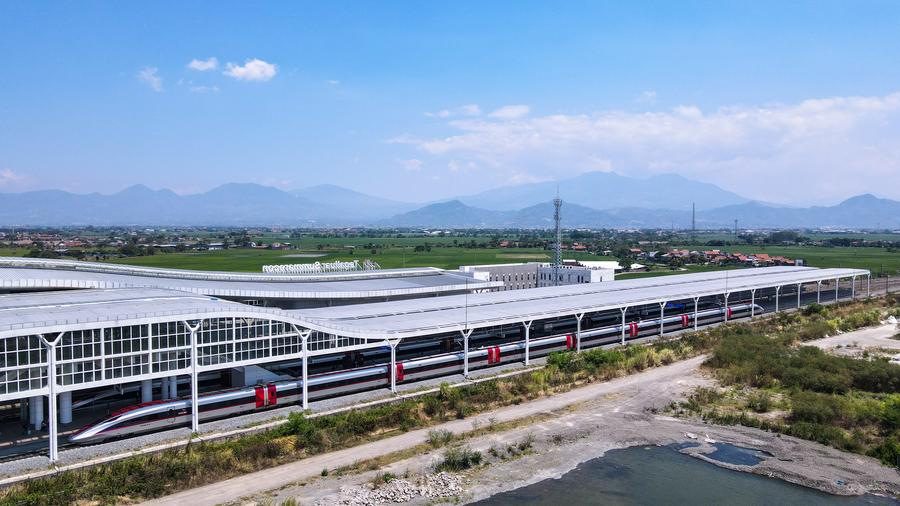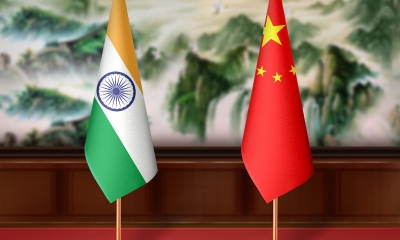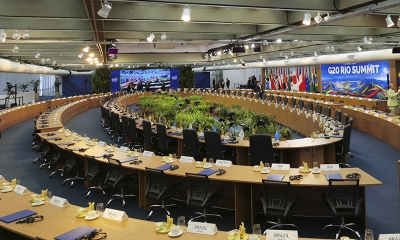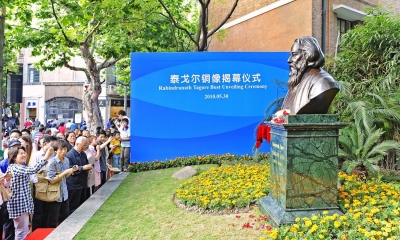The Ever-Growing BRICS Opens a New Era for the Global South

It is hoped that BRICS and non-BRICS countries can improve the global governance in the future, thereby amplifying the collective voice of the Global South.
The entry of Indonesia, the largest economy in Southeast Asia, into the BRICS as the 10th full member has captured much attention from the global media.
There is no doubt that the expansion of BRICS – an intergovernmental organization of emerging economies comprising Brazil, Russia, India, China and South Africa – offers a greater space in multilateral, regional and international cooperation mechanisms, at a time when the world is facing extraordinary political and economic challenges.
Today, BRICS is regarded as a rising power in the global economy as it collectively accounts for up to 35 percent of the world’s GDP, and nearly half of the world’s population. Since its founding in 2009, BRICS has been leading the “Global South” in the quest for financial justice. As a significant part of the developing world, the BRICS aims to tackle some of the core development challenges that the Global South countries are facing.
BRICS expansion reflects its solidarity
As a staunch supporter of and participant in the BRICS mechanism, China, the world’s second-largest economy, views BRICS cooperation as one of its diplomatic priorities. It is worth recalling that during the 9th BRICS Summit in Xiamen, southeast China’s Fujian Province in 2017, Chinese President Xi Jinping put forward “BRICS Plus” which aimed to bring non-BRICS countries into the organization so that more emerging economies could communicate and deepen cooperation through the BRICS mechanism. Since then, brick by brick, BRICS has gradually become a larger body, with the addition of Saudi Arabia, Iran, Egypt, Ethiopia and the United Arab Emirates (UAE) at the 16th BRICS summit in the city of Kazan, Russia on October 22-24, 2024.
President Xi pointed out at the “BRICS Plus” leaders’ dialogue in Kazan that the rise of the Global South ushered in “the great transformation across the world,” he said, “We support more Global South countries in joining the cause of BRICS as full members, partner countries or in the ‘BRICS Plus’ format so that we can combine the great strength of the Global South to build together a community with a shared future for mankind.”

Undoubtedly, the bloc’s enlargement from Asia, Africa, and Latin America has solidified its position as an indispensable force in international affairs. So far, more than 30 countries have formally applied for membership, and many more developing countries are lining up to join the club of emerging world giants.
It can be said with certainty that the inclusion of more countries into the BRICS fold will enhance ‘Global South’ cooperation and fairer world governance. Notably, by the end of 2023, the New Development Bank (NDB) had approved 105 projects in all member countries for approximately $35 billion.
Amplifying the voice of the Global South
Indonesia’s accession to BRICS strengthens BRICS’ influence in the Southeast Asian region and affirms Indonesia’s position as one of the world’s most dynamic emerging markets. Indonesia’s membership in BRICS opens up opportunities for new market access and diversification of trade partners. With complementary economies, Indonesia can increase exports to other member countries.
It is expected that Indonesia’s membership in BRICS will facilitate increased cooperation between Indonesia and other countries in the Global South, promoting economic resilience and development by reducing dependence on traditional Western partners.
BRICS is much more than a trade talking shop as billed by the Western media. It aims to strengthen cooperation among developing countries mostly from the Global South. Since the global multilateral system is in crisis due to protectionism, unilateralism, and hegemonism, BRICS countries should not be distracted by bilateral issues, but speak with one voice in regional and multilateral forums on economic and development challenges, and strengthen the unity and solidarity of the group. BRICS countries should enhance multilateralism by fostering connections with emerging markets and developing countries (EMDCs) and least developed countries (LDCs) in the Global South.
It is hoped that BRICS and non-BRICS countries can improve the global governance in the future, thereby amplifying the collective voice of the Global South.

Time to circumvent Dollar hegemony
Since the end of World War II, the United States which has dominated international financial transactions through the influence of the U.S. dollar as the global currency arising from the Bretton Woods system, has always blackmailed other countries of the world. On November 30, 2024, Donald Trump warned that if BRICS countries create a new currency or back an alternative to the U.S. dollar, they would face “100 percent tariffs” and risk being shut out of the U.S. market. Trump’s threat can be seen as an attempt to maintain the dollar’s dominance in global trade and finance.
The spirit of economic globalization and free trade has faced strong headwinds due to the “whimsical” increased tariffs, trade wars, and protectionist policies during President Trump’s first term, and of course, this has been further amplified by the “Build Back Better” policy of Biden administration.
In recent years, there is a growing voice of seeking to establish an alternative payment system for a fair and balanced global economy. Some developing countries believe the BRICS Plus will play a leading role in reforming the global financial and currency system.
Brazilian President Lula calls to develop new payment systems to facilitate trade between BRICS member countries. The goal of the BRICS Pay Initiative, with further study decided at the 2024 BRICS Summit in Russia, is to create a decentralized payment system using blockchain technology and token, allowing BRICS countries to trade with each other without relying on the U.S. dollar.
With the New Development Bank (NDB), BRICS can provide a platform for expanding financial cooperation, such as transactions in local currencies. This can help reduce dependence on the U.S. dollar and increase economic stability among BRICS countries.
The article reflects the author’s opinions, and not necessarily the views of China Focus.
 Facebook
Facebook
 Twitter
Twitter
 Linkedin
Linkedin
 Google +
Google +







